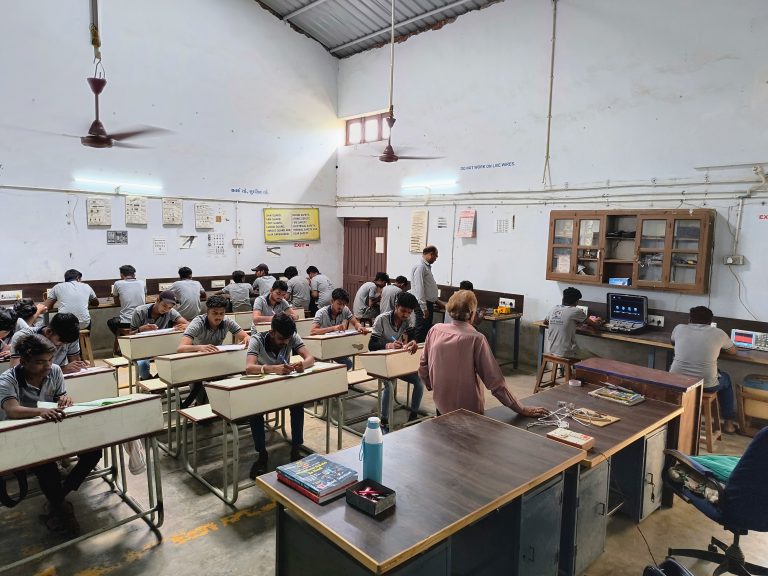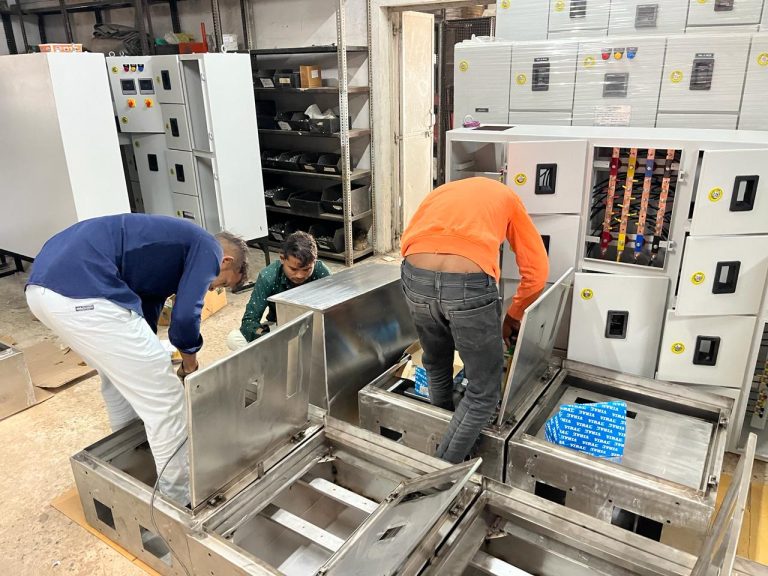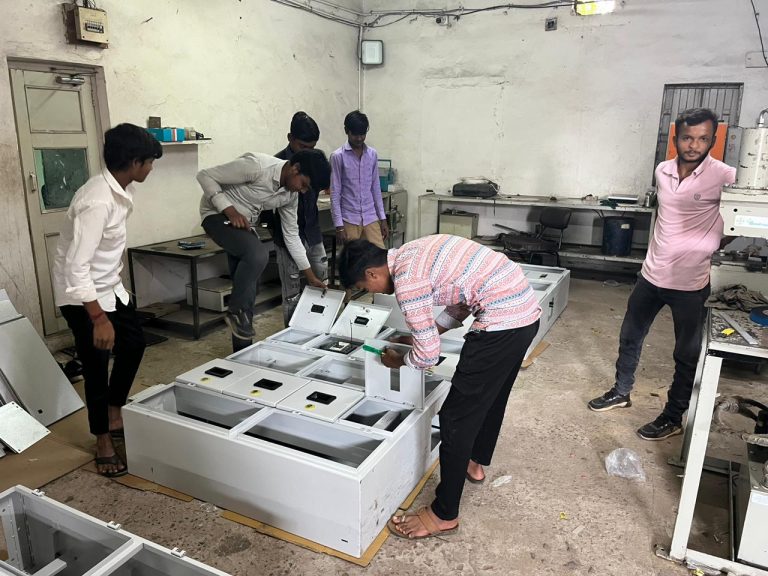




ELECTRONICS MECHANIC
- Understanding Electronic Components:
Electronics Mechanics learn about various components like resistors, capacitors, transistors, and ICs.
- Circuit Knowledge:
They gain knowledge of basic circuit design and function.
- Installation and Maintenance:
They learn procedures for installing, wiring, soldering, and connecting electronic systems and devices.
- Troubleshooting and Repair:
They use diagnostic tools and techniques to identify and fix faults in electronic devices.
- Tools and Instruments:
They are proficient in using instruments like oscilloscopes, multimeters, and signal generators.
- Practical Application:
They apply their knowledge and skills to repair and maintain electronic equipment in various settings, including industrial, military, and in aircraft, according to RRB Bangalore.

| Name | Education | Experience | Joining Date | Mo |
|---|---|---|---|---|
| Sanjaykumar K Patel | D.E. (Electronics & Sound) | 32 YEAR | 13-08-1993 | 9825634317 |

| Name | Education | Experience | Joining Date | Mo |
|---|---|---|---|---|
| Test | sds | SADSD |
|---|---|---|
| scfsd | sdfsf | fgghfgh |
| sdfsdf | sdfs | fghfgh |
| sdfsd | jhgjhn | fghnfg |
| sdfsd | ghj | fgghfgh |
- Electronic Technician:Diagnoses, repairs, and maintains electronic equipment and systems.
- Repair Technician:Repairs electronic devices, such as computers, industrial controls, and tele-metering systems.
- Field Service Technician:Installs, repairs, and provides customer support for electronic equipment in the field.
- Electronic Installer:Installs electronic systems and equipment, ensuring proper functioning.
- Instrumentation Technician:Works with electronic instruments used in various industries, including manufacturing and healthcare.
- SMT Technician:Performs surface mount technology (SMT) assembly and repair of electronic devices.
- CCTV Maintenance Technician:Installs, maintains, and repairs Closed-Circuit Television (CCTV) systems.
- Maintenance Technician:Maintains electronic equipment and systems, ensuring their proper operation.
- Trainee Technician:Works under the supervision of experienced technicians, gaining practical skills and knowledge.
Industries and Sectors:
- Telecommunications:Repair and maintenance of communication equipment and systems.
- Manufacturing:Maintenance and repair of industrial equipment and machinery.
- Healthcare:Maintenance and repair of medical electronic equipment.
- Transportation:Maintenance and repair of electronic systems in vehicles and other transportation equipment.
- Electronics Industry:Assembly, repair, and maintenance of electronic components and devices.
- IT Sector:Repair and maintenance of computer hardware and peripherals.
- Construction:Installation and maintenance of electronic systems in buildings and infrastructure.
- Automotive:Repair and maintenance of vehicle electronic systems.
Job Titles:
- Service Engineer:Provides technical support and services for electronic equipment.
- Field Engineer:Performs field-based technical support and installation.
- Instrument Mechanic:Works with electronic instruments in various industries.
- Technician (Electronic mechanic):A general term for an electronics technician.
- Electronics Mechanic:Repairs and maintains electronic equipment.
- Electronics Technician:Diagnoses and repairs electronic equipment.
- Electrical Technician:Performs electrical work related to electronic systems.
- ITI Electrician:Works with electrical systems and components.
- Field Technician:Installs and maintains electronic equipment in the field.
- Maintenance Technician:Maintains electronic equipment and systems.
- Technician Trainee:A trainee position for learning and gaining experience.
- Trainee Field Service Engineer:A trainee position for field service engineering.
- Apprentice:A training position where one learns the skills of an electronic mechanic.
Skills and Knowledge Required:
- Basic knowledge of electronics:Understanding of electronic circuits, components, and their functions.
- Troubleshooting and diagnostic skills:Ability to identify and diagnose problems in electronic systems.
- Repair and maintenance skills:Ability to repair and maintain electronic equipment.
- Hands-on skills:Proficiency in using hand tools and test instruments.
- Electrical wiring and circuit reading:Knowledge of electrical wiring and circuit diagrams.
- Mechanical assembly:Ability to assemble electronic components and systems.
- Safety protocols:Knowledge of safety procedures while handling electrical/electronic systems.
- Communication skills:Ability to communicate effectively with customers and colleagues.
- Problem-solving skills:Ability to identify and solve technical problems.
Career Advancement:
Pursuing a diploma or degree in electronics engineering: Enhancing technical knowledge and expanding career options.Tab Content
